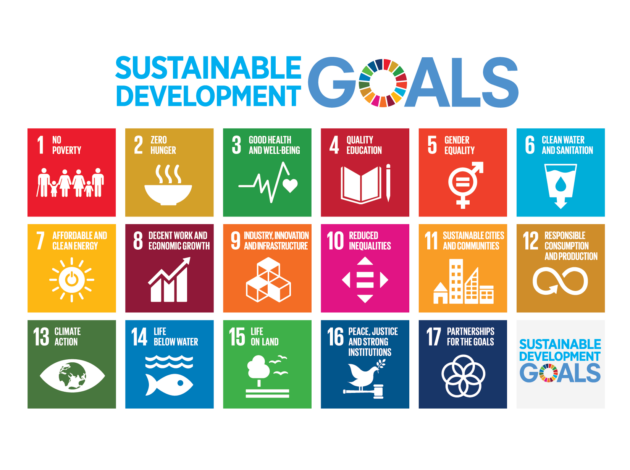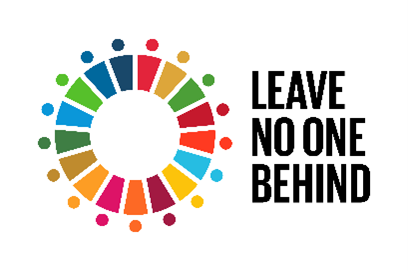Sustainable Development Goals: More UK data and clearer insight to inform the global strategy

As the UK’s national statistical office, the ONS has been reporting the data required by the UN Sustainable Development Goals (SDGs) framework. Silvia Manclossi leads our SDG team and reflects on what’s been achieved since the 2030 Agenda was agreed in 2015, how the SDGs can help understand current challenges and how everyone can help.
What are the SDGs?
The Sustainable Development Goals (SDGs) are the United Nations’ (UN) shared blueprint for peace and prosperity for people and the planet, now and into the future. They provide a comprehensive framework of targets to aim for by 2030, a way to identify people or places that need the most help to make life better.
As SDG lead at ONS for a few months now, I’m really proud of what the team has achieved over the last six years. When I took over this important role, I knew this was a challenging baton to pick up. The SDGs are recognised across the globe as purposeful and ambitious. They’re not just “colourful squares” to be over-looked as unachievable wish list. They provide a way to track the world’s progress towards better lives and a better place in which to have those lives.
The word “sustainable” makes many people think the SDGs are all about the environment, but they are wide-reaching. The truth of that came home to me in my first weeks in the role when I could see how current priorities for UK policymakers and the public, such as levelling up and achieving net zero, all have connections and similarities to the SDGs. Poverty, hunger, health, education, equality, sustainability, industry, employment, peace, justice… the SDGs cover all manner of topics and, altogether, aim to achieve sustainable social and economic improvement and environmental sustainability.
What have we achieved so far?
Since we started reporting data for the SDGs, lots has changed and we’ve been collaborating across government, the UK and internationally to provide more comprehensive data. We’ve just published our annual update outlining what we’ve been up to for the past year and our key achievements. We have made good progress in reporting SDG indicators, filling increasingly challenging data gaps: we’ve doubled the amount of headline data we report for the UK, from 41% in 2017 to 83% in 2021, and increased the disaggregations underneath our headline figures.
We’ve published our approach to assessing whether non-official data can be used to report the SDGs and improve the inclusivity of our statistics. Our original data site has been used to develop an online template for anybody to use to report their own data. Known as Open SDG, over 30 places are using the platform already! We’ve also supported sub-national SDG reporting and helped the city of Bristol and the Liverpool 2030 Hub launch their SDG data site using Open SDG. These sites, and others that will follow, make it possible to track and check local progress towards the Goals.
How can the SDGs help understand the important topics of the day?
Our Statistics for the Public Good strategy aims to make sure everyone counts, and is counted, and no one is forgotten. Disaggregation is crucial to shine a light on groups and places that are at risk of being left behind. The coronavirus pandemic has been an example of how the most negative impacts have been felt more acutely by some groups and the UN have promoted the SDGs framework as a useful tool to help recovery from the COVID-19 pandemic.
 Alongside our latest annual update, we published an article looking at who has been most affected by the COVID-19 pandemic in the UK. We looked at the subject from social, economic and environmental perspectives. For example, SDG 8 promotes decent work and economic growth for all. We found those with the lowest incomes were more negatively affected, like in terms of work and changes in income, leading to the potential widening of financial inequalities.
Alongside our latest annual update, we published an article looking at who has been most affected by the COVID-19 pandemic in the UK. We looked at the subject from social, economic and environmental perspectives. For example, SDG 8 promotes decent work and economic growth for all. We found those with the lowest incomes were more negatively affected, like in terms of work and changes in income, leading to the potential widening of financial inequalities.
Although the 17 SDGs exist as individual goals, there are clear links between them. We have highlighted some of these links in the context of the coronavirus pandemic. To achieve the SDGs by 2030, the UK government has fully embedded the goals in the activities of each department. This highlights the synergies between these activities and how they can lead to progress across a number of goals.
How can you help?
Building on the strong progress made over the last year, we plan to focus on continuing our work to make SDGs data even more inclusive and leave no one behind. We will continue to engage regularly with our users and the wider SDG community.
Thank you to everyone who has worked with us to make our achievements possible. We are always open to questions or suggestions about our work and embrace Goal 17 by encouraging partnerships. The 2030 Agenda is global and collaborative, and we will continue to rely on many of you to achieve our ambition. If you can help us or would like to provide feedback, contact us at sustainabledevelopment@ons.gov.uk.

Silvia Manclossi is Head of Sustainable Development Goals at the Office for National Statistics